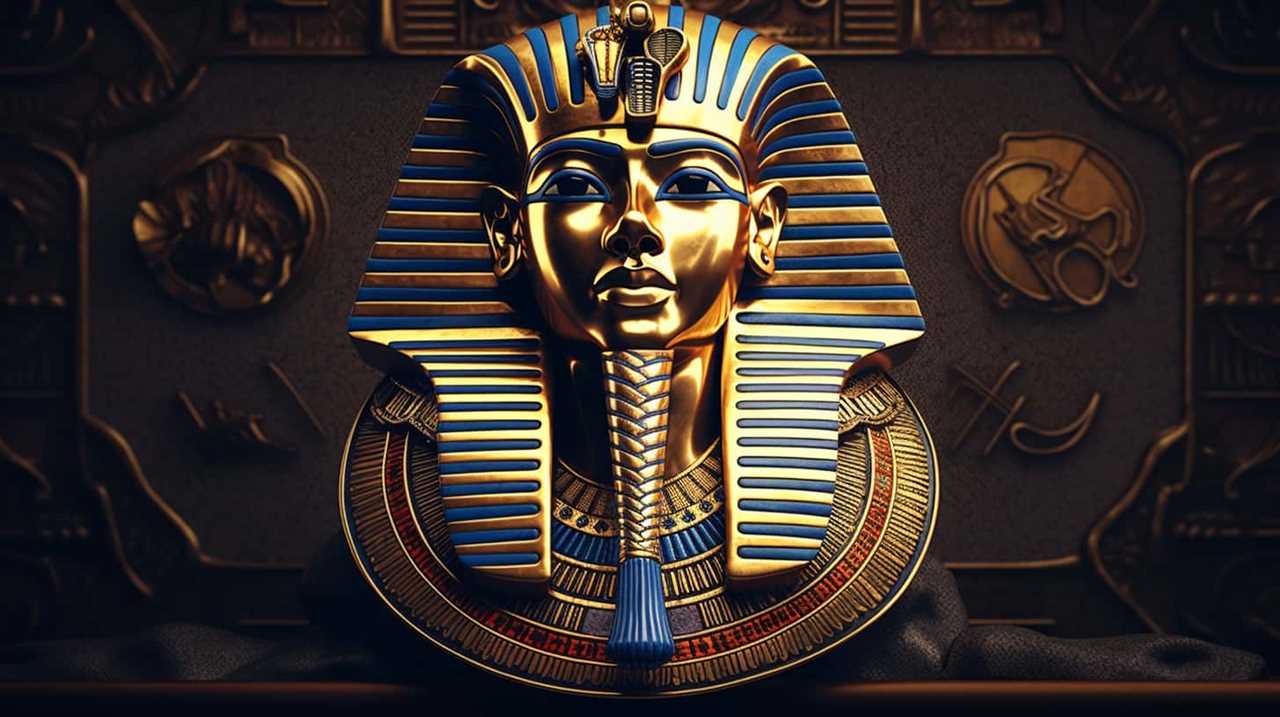Do you know that the ancient philosophies of Greece still offer valuable wisdom for our modern lives? The teachings of Socrates, the ideals of justice in Plato’s Republic, Aristotle’s moral principles, the pursuit of happiness by Epicurus, and the Stoic principles for finding peace all continue to provide timeless lessons that remain relevant in our lives today.
These ancient philosophers delved into fundamental questions about the nature of reality, human existence, and how to live a good life. By studying their works, we can gain a deeper understanding of ourselves, our relationships, and the world around us. The influence of Greek philosophy can be seen in various disciplines, including psychology, ethics, and political theory.
Join us as we explore the profound lessons that ancient Greek philosophy can teach us, and discover how these age-old ideas can provide guidance and inspiration in our modern lives.
Key Takeaways
- The Socratic method encourages critical thinking and self-reflection, which are valuable skills in today’s world.
- The pursuit of virtue and the cultivation of wisdom are important for living a meaningful and fulfilling life.
- Balance, moderation, and self-discipline are crucial for achieving inner peace and emotional well-being.
- The principles of ancient Greek philosophy, such as rational inquiry and moral relativism, can be applied to navigate modern ethical dilemmas with wisdom and discernment.
The Wisdom of Socrates
In our exploration of ancient Greek philosophy, we delve into the profound wisdom of Socrates. Socrates, one of the most influential philosophers in history, developed a unique method of inquiry known as the Socratic method. This method, characterized by a series of probing questions, aimed to stimulate critical thinking and self-reflection. Socrates believed that true knowledge could only be attained through the process of questioning and examining one’s own beliefs.

The Socratic method has had a lasting impact on the field of philosophy and continues to be used today. Its emphasis on questioning and dialogue encourages individuals to think deeply and critically about their own assumptions and beliefs. Through engaging in this method, one can achieve not only intellectual enlightenment but also personal growth and self-awareness.
Socrates’ philosophical enlightenment extended beyond the Socratic method. He also emphasized the importance of virtue and the pursuit of a meaningful life. Through his teachings and conversations with his students, Socrates challenged societal norms and encouraged individuals to question their own values and ethical principles.
The Virtue of Plato’s Republic
Plato’s Republic explores the concept of virtue and its role in creating an ideal society. In Plato’s ideal society, justice is the fundamental virtue that governs all aspects of life. According to Plato, justice is achieved when each individual fulfills their proper role in society, contributing to the overall harmony and well-being of the community.
Plato’s concept of justice in the Republic goes beyond mere fairness or legal compliance. It involves a deep understanding of one’s own nature and the nature of the society in which one lives. For Plato, the virtuous individual is one who possesses wisdom, courage, temperance, and justice – the four cardinal virtues that guide a person towards the good life.

In Plato’s ideal society, these virtues aren’t only cultivated in individuals, but they’re also reflected in the structure and organization of the state. The rulers, known as philosopher-kings, are the embodiment of wisdom, while the guardians exhibit courage and temperance. Each citizen is assigned a role that aligns with their natural abilities and talents, ensuring a harmonious and just society.
Plato’s Republic presents a compelling vision of an ideal society, where virtue is the guiding principle. It teaches us the importance of living a virtuous life and the transformative power of justice. Although Plato’s ideal society may seem utopian, it serves as a model for us to aspire towards, reminding us of the enduring relevance of ancient Greek philosophy in shaping our understanding of virtue and justice.
Aristotle’s Ethics in Daily Life
We frequently apply Aristotle’s ethics in our daily lives to cultivate virtuous behavior and achieve personal flourishing. Aristotle’s teachings on practical ethics provide us with valuable insights into how we can live a good and fulfilling life. One of Aristotle’s central ideas is that virtues aren’t innate qualities, but rather habits that we acquire through conscious effort and practice. This means that we’ve the ability to cultivate virtues such as courage, kindness, and integrity through our actions and choices.
In our daily lives, Aristotle’s ethics can guide us in making moral decisions and behaving in a virtuous manner. For example, when faced with a difficult decision, we can consider what a virtuous person would do in that situation. By reflecting on the virtues and applying them to our actions, we can strive to act in accordance with moral principles.

Moreover, Aristotle emphasizes the importance of balance and moderation in our lives. He argues that living a virtuous life requires finding the mean between extremes. For instance, courage lies between recklessness and cowardice, while generosity lies between extravagance and stinginess. By recognizing and striving for this balance, we can navigate the complexities of our daily lives with wisdom and virtue.
Epicurus on Finding Happiness
Epicurus offers valuable insights on the pursuit of happiness. His philosophy centers around the idea that true happiness comes from the pursuit of pleasure. However, it’s important to note that Epicurus’ concept of pleasure isn’t limited to immediate gratification or indulgence. Rather, it encompasses a deeper understanding of pleasure that leads to long-term fulfillment and contentment.
Here are five key aspects of Epicurus’ philosophy on finding happiness:
- Minimize desires: Epicurus believed that excessive desires and material possessions only lead to unnecessary suffering and anxiety. By minimizing our desires and focusing on what’s truly essential for our well-being, we can find greater satisfaction and tranquility.
- Cultivate friendships: According to Epicurus, strong and meaningful relationships are crucial for happiness. By surrounding ourselves with genuine friends who share our values and provide emotional support, we can experience a sense of belonging and fulfillment.
- Live in the present: Epicurus emphasized the importance of living in the present moment. By letting go of worries about the past or anxieties about the future, we can fully engage with the present and find joy in everyday experiences.
- Practice moderation: While pursuing pleasure is essential, Epicurus also emphasized the importance of moderation. By avoiding excesses and practicing self-restraint, we can maintain a balanced and sustainable lifestyle that contributes to long-term happiness.
- Seek intellectual pleasures: Epicurus believed that intellectual pursuits and the cultivation of knowledge bring great pleasure. By engaging in philosophical discussions, learning new skills, and seeking intellectual stimulation, we can experience a deeper sense of fulfillment and happiness.
Stoic Principles for Inner Peace
Continuing from the previous subtopic, let’s explore the Stoic principles that can guide us towards inner peace. Stoicism, a school of ancient Greek philosophy, offers valuable insights and practices that can help us navigate the challenges of modern life. By cultivating Stoic practices and mindfulness techniques, we can find a sense of tranquility and equanimity amidst the chaos.

To better understand these Stoic principles, let’s take a closer look at their core teachings:
| Stoic Principles | Description | Application |
|---|---|---|
| Virtue is the highest good | According to the Stoics, true happiness and inner peace come from living a life of virtue. Virtue entails cultivating wisdom, justice, courage, and self-control. | Strive to align your actions with these virtues in your daily life. |
| Focus on what you can control | Stoicism emphasizes the importance of focusing on what is within our control and accepting what is not. By directing our attention to our thoughts, choices, and actions, we can free ourselves from unnecessary worries and anxieties. | Practice letting go of things beyond your control and channeling your energy towards what you can influence. |
| Embrace the present moment | Mindfulness is a key aspect of Stoic philosophy. By fully engaging in the present moment and accepting it as it is, we can find serenity and contentment. | Cultivate mindfulness through meditation, reflection, and consciously savoring each experience. |
The Influence of Greek Philosophers
The enduring philosophical principles put forth by ancient Greek philosophers continue to have a profound influence on modern ethical dilemmas.
From Socrates’ emphasis on self-examination and the pursuit of knowledge, to Aristotle’s exploration of virtue and the good life, these ideas shape our understanding of morality and guide our decision-making process.
Enduring Philosophical Principles
One enduring philosophical principle that ancient Greek thinkers have bequeathed to us is the pursuit of knowledge and understanding through rational inquiry. This principle, which forms the foundation of Western philosophy, continues to shape our approach to various modern ethical dilemmas. Greek philosophers emphasized the importance of critical thinking and logical reasoning in order to gain a deeper understanding of the world and ourselves. Their ideas have had a lasting impact, influencing our thinking in areas such as ethics, politics, and metaphysics.

Some enduring philosophical principles include:
- The importance of self-examination and self-awareness
- The pursuit of virtue and moral excellence
- The belief in the power of reason and rationality
- The recognition of the interconnection between mind and body
- The emphasis on living a meaningful and fulfilling life through the cultivation of wisdom and knowledge.
These principles continue to guide our thinking and provide valuable insights into the complexities of human existence.
Modern Ethical Dilemmas
To further explore the enduring influence of ancient Greek philosophers, let’s delve into the realm of modern ethical dilemmas and the ways in which their teachings continue to shape our understanding and approach.
In the realm of ethical decision making, Greek philosophers provide valuable insights that remain relevant today. One such concept is moral relativism, which suggests that ethical truths aren’t absolute but vary depending on cultural, historical, and individual perspectives. This idea challenges the notion of a universal moral code and encourages us to consider different viewpoints when making ethical decisions.

The teachings of philosophers like Socrates, Plato, and Aristotle remind us of the importance of critical thinking, self-reflection, and questioning societal norms in our ethical deliberations. By incorporating these principles into our ethical decision making, we can navigate the complex moral landscape of our modern world with greater wisdom and discernment.
Frequently Asked Questions
How Did Ancient Greek Philosophers View the Role of Women in Society?
Ancient Greek philosophers viewed the role of women in society as subservient and confined to the domestic sphere. However, feminist perspectives on ancient Greek philosophy challenge these views, highlighting the need for gender equality and recognizing the contributions of women in various fields.
What Were the Major Criticisms Against Greek Philosophy During Its Time?
Ancient Greek philosophy faced several criticisms during its time, including accusations of corrupting youth and challenging traditional beliefs in higher powers. However, its influence on other civilizations and its exploration of the role of women remain significant.
Did Ancient Greek Philosophers Believe in a Higher Power or Deity?
Ancient Greek philosophers held a range of theological beliefs, with some believing in a higher power or deity and others questioning or rejecting such beliefs. These diverse perspectives shaped their philosophical inquiries and continue to inspire us today.

How Did Greek Philosophy Influence Other Civilizations and Philosophical Traditions?
Greek philosophy, with its emphasis on reason and critical thinking, has had a profound influence on modern education, shaping our approach to knowledge. Additionally, it laid the foundation for political theory, inspiring democratic ideals that still resonate today.
What Were the Main Differences Between the Philosophies of Socrates, Plato, and Aristotle?
Socrates questioned authority and emphasized moral virtue. Plato developed the theory of forms and proposed philosopher kings. Aristotle focused on empirical observation and teleology. These differences in their philosophies have shaped our understanding of ethics, politics, and the pursuit of knowledge.
How Can Ancient Greek Philosophy Still Be Relevant to Modern Life?
Many modern philosophy tips are inspired by ancient Greek philosophies. The timeless wisdom of Socrates, Plato, and Aristotle can still offer valuable insights into ethics, politics, and the pursuit of happiness in our modern lives. Their teachings on virtue, reason, and the importance of self-reflection remain relevant today.
Conclusion
In conclusion, the timeless wisdom of ancient Greek philosophy continues to hold immense relevance in our modern lives.
Through the teachings of Socrates, Plato, Aristotle, Epicurus, and the Stoics, we’re reminded of the importance of self-reflection, virtue, ethics, happiness, and inner peace.

Their insights provide us with invaluable guidance, illuminating a path towards a more meaningful and fulfilling existence.
By embracing these principles, we can navigate the complexities of the world with greater clarity and purpose.
Fritz is a writer whose humor and wit infuse life into words. His creativity, combined with a profound love for the English language, makes him a unique voice at afterQuotes. Fritz’s engagement with books, culture, and social media adds depth to his contributions, making them resonate with our diverse audience.










